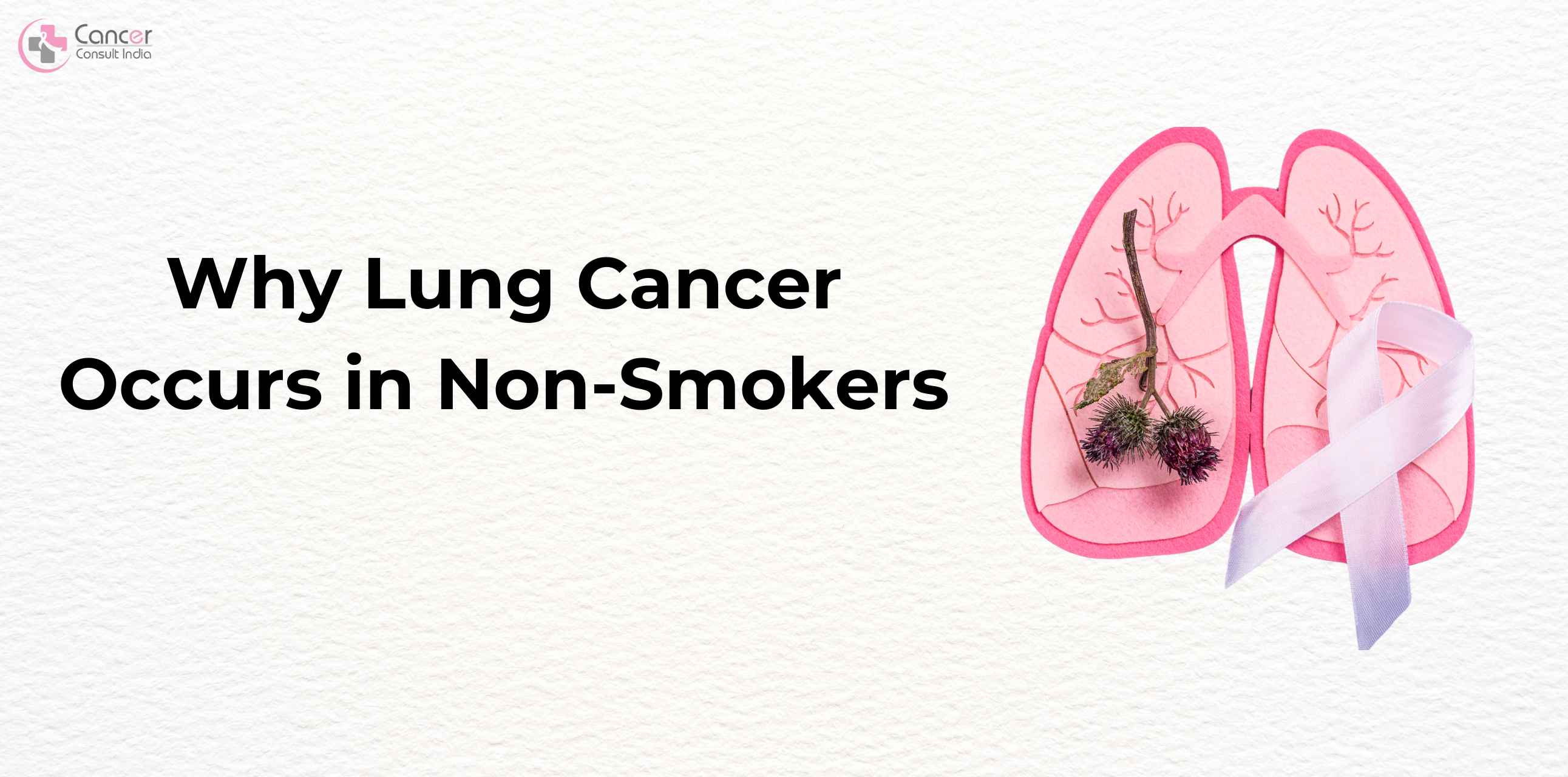Dr Manish Singhal - The best Cancer Specialist in Delhi
Why Lung Cancer Occurs in Non-Smokers: Causes and Prevention

Most people associate lung cancer with smoking, but many non-smokers develop the disease too. For this reason, we need to understand what causes lung cancer to prevent it from occurring among non-smokers. This blog will discuss factors that contribute to lung cancer in non-smokers as well as ways of preventing it.
Lung Cancer Causes for Non-Smokers
Secondhand Smoke
Secondhand smoke exposure is a known risk factor for lung cancer in non-smokers. Those who live or work around smokers are at an increased risk due to inhaling toxic chemicals found in tobacco smoke. Over time, this passive exposure can cause great damage to the lungs.
Radon Gas
Radon, a naturally occurring radioactive gas that seeps into homes through cracks in foundations is the second leading cause of lung cancer in America after smoking. Lung cells can be harmed by prolonged contact with high concentrations of radon gas which may result in malignant tumors developing within them when exposed continuously over long periods without interruption. Testing your home for radon and mitigating its presence can help reduce such risks.
Air Pollution
Long-term exposure to polluted air especially in urban centers increases the chances of getting affected by lung carcinoma. Diesel exhaust industrial emissions particles are some pollutants associated with carcinogenicity towards human beings particularly those living within highly contaminated environments.
According to studies conducted on different populations exposed daily under varying levels, these results show high mortality rates resulting from respiratory diseases including bronchogenic carcinoma.
Genetic Factors
Among other things, genes play a big role when it comes to predicting who gets sick even if they don’t smoke themselves. As per an oncologist in Noida, certain mutations like EGFR variants tend to occur more frequently among patients diagnosed positive than negative indicating their involvement during tumorigenesis pathways
Occupational Hazards
There exist jobs where workers come into contact regularly with substances known as causative agents responsible for inducing malignant growths. Examples include asbestos, silica, and dust from mining construction, manufacturing, and industries. Therefore protective gear must always be worn while working so as not to expose one’s self unnecessary dangers associated with these fields.
Previous Radiation Therapy
People treated using radiotherapy directed towards chest areas because they had breast cancers or lymphomas etc, become prone later in life to developing lung malignancies. Since healthy tissues were destroyed by radiation hence causing mutations that lead to resultant formations.
Prevention Strategies
Avoid Secondhand Smoke
Non-smokers should abstain from places that have secondhand smoke. Encouraging friends and family to quit smoking as well as advocating for smoke-free policies in public spaces can help decrease exposure.
Test for Radon
Regularly test homes for radon levels, particularly in areas with high concentrations of radon. Professional radon mitigation services can reduce exposure and lower the risk of lung cancer if high levels are found.
Reduce Air Pollution Exposure
While it’s difficult to avoid air pollution completely, measures can be taken to limit exposure. Indoor air purifiers, staying indoors when pollution levels are high, and supporting policies for decreasing air pollution can all contribute to lung health.
Genetic Counseling and Testing
People who have a family history of lung cancer or who carry known genetic mutations may benefit from genetic counseling from a cancer doctor in Noida like Dr. Manish Singhal. Specific mutation testing can help shape preventative strategies and early detection approaches.
Workplace Safety
In industries where there are known carcinogens, employers and employees need to prioritize safety in the workplace. Early signs of lung cancer may be detected through regular health check-ups, adherence to safety protocols, and the use of protective equipment.
Healthy Lifestyle Choices
Immune system strength and cancer risk reduction are both supported by healthy living practices. Regular physical activity coupled with a diet rich in fruits and vegetables while minimizing harmful substance exposure should all be considered preventative measures.
Conclusion
Lung cancer among non-smokers is a complex issue that has many contributing factors behind it which means understanding these causes along with implementing prevention strategies will greatly lower risks associated with this disease.
An oncologist in Delhi, suggests avoiding secondhand smoke exposure; testing homes for radon; working towards cleaner air quality; ensuring safety at work; and eating healthy foods daily to protect our lungs! Additionally, those who face higher threats due to their genes might find value in undergoing genetic counseling sessions followed by tests afterward too!
For the best treatment for lung cancer in Noida, consult Dr. Manish Singhal from CCI. Research progresses regarding this type of tumor located within human breathing organs (the lungs) among people who do not inhale tobacco products regularly nor excessively consume them over time.
Public awareness campaigns combined with proactive initiatives aimed at preventing such cases would play pivotal roles in reducing prevalence rates among non-smokers exposed passively!




